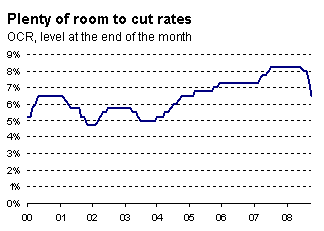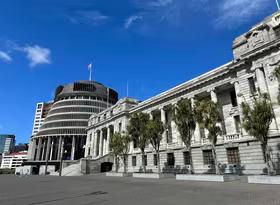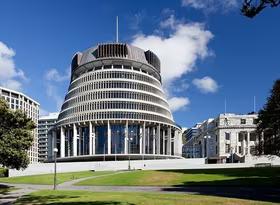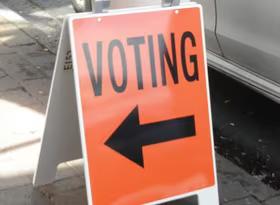When not to stimulate
There is now little doubt in anyone’s mind that the New Zealand economy is in for another bumpy ride over the coming year. Given this realisation the burning question is: How can government policy save the day?
Many analysts believe that looser fiscal policy, brought about either by cutting taxes or increasing short-term government spending, will help to buffer the economy during the upcoming tough times.
However, an economist that suggests fiscal stimulus whenever economic activity declines is like a doctor that suggests antibiotics whenever their patients feel sick. Whether a fiscal stimulus is a good idea depends on the specifics of the crisis we currently face.
The economy has slowed for a number of reasons: the international price of what we sell overseas is falling, the price of what we buy from overseas has risen, we have experienced a drought, household wealth has slumped, and the cost and availability of credit have deteriorated in some sections of the economy.
In the face of this myriad of shocks, there is the potential for the government to help steady the economy – especially when the shocks to economic activity are only temporary.
The primary situations where expansionary fiscal policy can be useful are when consumer and business confidence drops "irrationally", when prices in some markets cannot adjust, or when consumers and businesses are "credit constrained" – a term which implies that people who could get credit in a normal situation can’t now.
When these situations occur the economy may deteriorate more markedly than is implied by fundamentals, and government action has the ability to push economic activity back to its "natural" rate.
To some degree we are facing two of these menaces – consumer and business confidence has dropped like a stone, while anecdotal evidence suggests that there are a number of normally profitable businesses that have lost access to credit.
However, the Reserve Bank has the ability to deal with both of these short term issues by cutting the official cash rate – a duty they have taken on in earnest! With the Bank responding to smooth the New Zealand economic cycle, there is little need for the government to get involved.
Furthermore, the use of monetary policy to buffer the economy from these temporary shocks is superior to the use of fiscal policy. Monetary policy can react much more quickly to changes in the economic situation and, even with the popularity of fixed-rate mortgages and a damaged credit market, monetary policy will help lift confidence and economic activity in a timelier manner. Even more importantly, monetary policy is not subject to regulatory capture in the same way as fiscal policy – the Reserve Bank can’t be pressured into changing interest rates for any select interest group.
Some may say that the situation is worse than I have put forward – even once the credit market has settled, interest rates and access to credit will still be more restrictive than in recent history. Furthermore, even with a lower official cash rate, the possibility of a six-quarter recession will still be on the cards.
Even so, the distinct possibility of 18months of shrinking economic activity does not ensure that looser fiscal policy is a good idea.
Beyond the temporary drop in confidence and elevated uncertainty in the credit market there are permanent, structural, factors that have changed.
The nations that have kindly loaned us money for so long will now want some back, in order to deal with their own reductions in income. Over time it appears that limits on the supply of oil will keep the price of fuel elevated (even given recent declines in the price). And finally, the realisation that we owe a substantial carbon liability to the rest of the world implies that we will have to ship more of our country’s produce overseas to pay for it.
Any increase in government spending (and hence borrowing) in order to prevent these permanent shocks will not be of any use – because the funds that are used will have to be paid back at some point, exacerbating the inevitable shift to a lower level of economic activity.
A policy that requires increasing government spending in the face of a permanent negative shock to economic activity is dangerous – as it implies increasing spending in the face of lower national income. To put this in perspective, such behaviour by the government would be equivalent to a household increasing spending after they have received a pay cut!
Just as a household has to take a pay cut on the chin and move on with a lower level of consumption, a nation that receives a permanent shock to its income must simply accept a lower level of economic activity.
If monetary policy runs out of steam and we believe that the shocks to economic growth are still only temporary then there may be a special role for increased government spending. However, until that time there is not.





